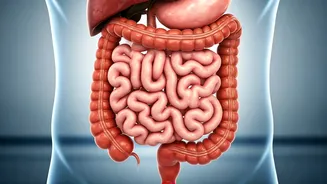What is Transit Time?
Gut transit time refers to the duration it takes for food to travel from your mouth to your anus. This timeframe is a critical indicator of digestive health
and overall well-being. Knowing your gut transit time can provide valuable insights into how efficiently your body processes food and absorbs nutrients. Factors like diet, lifestyle, and underlying health conditions all play a role in determining this time. Generally, the ideal gut transit time falls within a certain range, but this can vary depending on individual factors. Variations outside this range may indicate potential digestive issues that need attention. Maintaining a healthy gut transit time is linked to efficient nutrient absorption and regular bowel movements, making it a cornerstone of digestive wellness. It’s an essential aspect of overall health that everyone should be aware of.
The Sweetcorn Test Revealed
The sweetcorn test is a straightforward method to measure your gut transit time. To perform the sweetcorn test, you simply eat a serving of sweetcorn and then observe when the sweetcorn kernels appear in your stool. The time between consumption and excretion provides an estimated measure of your digestive transit time. This at-home assessment can be very insightful, allowing individuals to gain a practical understanding of how their digestive systems are performing. While the sweetcorn test provides a rough estimate, it doesn't account for all factors influencing gut transit time. Various factors may influence this time, including the individual's diet, hydration levels, activity level, and underlying health conditions. This test is a useful starting point for understanding your digestive function, though it is not a comprehensive diagnostic tool.
Factors Affecting Time
Several factors can impact gut transit time, influencing the speed at which food moves through your digestive system. Diet plays a significant role; a diet rich in fiber generally promotes a faster transit time, while diets high in processed foods may slow it down. Hydration levels are also crucial; adequate water intake supports healthy digestion, and dehydration can lead to constipation, slowing down the process. Physical activity is another significant factor, as regular exercise stimulates the muscles of the digestive tract. Moreover, underlying health conditions, such as irritable bowel syndrome (IBS) or thyroid disorders, can affect gut motility. Medications also affect transit time; some medications, like opioids, can slow down the digestive process, while others may speed it up. Maintaining a balanced diet, staying hydrated, engaging in regular physical activity, and managing any underlying health conditions are all important for optimal gut transit time.
Symptoms of Problems
Deviations from the normal range of gut transit time can manifest in several symptoms, signaling potential issues with digestive health. Slow transit time, often indicated by constipation, can lead to infrequent bowel movements, difficulty passing stools, and a feeling of incomplete evacuation. This is a common indication that the digestive system is not functioning efficiently. Conversely, a rapid transit time can cause diarrhea, which may involve frequent and loose stools. Other related symptoms of an abnormal gut transit time can include abdominal pain, bloating, and excessive gas. Furthermore, nutrient absorption can be affected when transit time is outside the normal range, potentially leading to deficiencies or malabsorption. Recognizing these symptoms and consulting a healthcare professional is crucial for diagnosing and addressing any underlying digestive concerns, ensuring efficient nutrient absorption and overall digestive wellness.
Improving Gut Health
Optimizing gut health involves various lifestyle and dietary adjustments aimed at supporting healthy digestion and transit time. Increasing dietary fiber intake is essential, as fiber adds bulk to the stool, promoting regular bowel movements. This can be achieved by incorporating more fruits, vegetables, and whole grains into your diet. Staying adequately hydrated is also important for healthy digestion and transit time. Regular physical activity can help stimulate the muscles of the digestive tract, aiding in food transit. Additionally, incorporating probiotics or foods rich in probiotics, such as yogurt or fermented foods, can support the balance of beneficial bacteria in the gut, further promoting optimal digestive function. Managing stress and ensuring adequate sleep are vital, as chronic stress can negatively impact digestive health. A comprehensive approach, incorporating these strategies, can significantly improve gut health and ensure a healthy transit time.




















